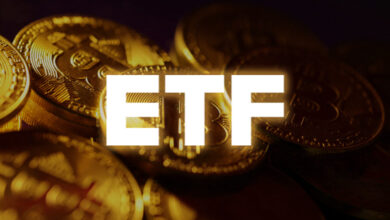Gartner Ali Merji on Blockchain: Just because it works doesn’t mean it is needed

Ethereum platform leads with many use cases being developed
Unlock interviewed Mr. Ali Merji, Research Director at Gartner in UAE. According to previous reports from Gartner Blockchain expectations are greatly inflated. Mr. Merji agrees, “Blockchain is very inflated in finance sector and governmental sectors. Most of the major projects today are using it for cost optimization but its best use is to build trust with the promise of decentralization.”
The area where Gartner Research Director believes Blockchain is relevant is in Government and supply chain. According to Merji, adoption is key as it helps to clearly define what Blockchain is. He adds, “Blockchain today is still in its infancy and we will only see it mature in 5-10 years.” Most of the projects today are still in Proof of Concept phase. Until now according to Merji no practical real case studies exist.
Blockchain and Identity
Merji believes that identity is one of the use cases and one part of the Blockchain. Merji questions, “who will keep the KYC (know your customer) data, will it be a body, at the moment for example the banks consider this as propriety data and don’t want to share it with central authority, as such there needs to be regulation and structures to ensure that identities are entered correctly and vetted, and this is still in conceptual stage.” Questions as to who will be responsible are still open.
The platform of choice
Mr. Merji states, “Ethereum is doing better than others with many use cases being carried out so in terms of development Gartner believes Ethereum is doing well.” He adds, “By 2020 we will see consolidations across the platforms and you will see a few platform front runners. Gartner expects business value of Blockchain to reach $176 billion by 2025 and to exceed $3.1 trillion by 2030.”
Viable Blockchain Solutions
According to Merji, Blockchain is not necessarily practical for cross-border payments. Merji states, “We need to ask questions such as will it really make a benefit, should we really replace our existing cross-border payments technology with Blockchain, is this the best way to do it?” He adds, “Just because Blockchain is involved in payment augmentation does not necessarily mean replace current payment technology.
He explains, “Of course Blockchain can add security to cross border payments, but we haven’t seen successful use cases yet.”
As for use cases, Merji claims, “the government has many use cases, as does supply chain sector and wearable devices for health, security and financial services. In the broader perspective we can look at Blockchain and its indirect impact on ATM devices and IoT for connected cars, smart homes, smart cities etc..”
Blockchain Challenges
Merji believes the biggest challenges are three basic ones. As he explains, “First is perceptions, we need to use it for what is supposed to be used, decentralization, customer centricity, and performance business model. Secondly, we need to ask if it is the best solution, and thirdly we need to develop the capabilities both technical and human, we need to look at energy consumption for Blockchain and other issues.”
The MENA Region and Blockchain
Merji states that as of today the only Blockchain initiatives have been in Dubai. As for the private sector large multinationals are playing with Blockchain but locally nothing impactful. However Merji states, “There is a lot of interest and developments happening in Dubai.” He commends Dubai for their efforts.
Conclusion
In Gartner’s recent top trends for Hype Cycle for Emerging technologies 2017, blockchain has moved along the hype cycle since 2016.





